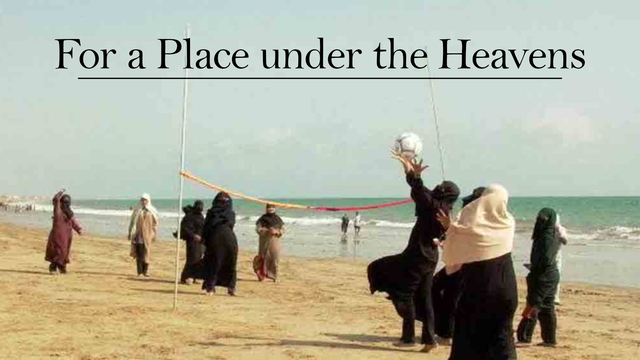For a Place under the Heavens
Twenty years ago, Pakistan was a vibrant, secular society with a bustling nightlife. Women wore jeans and short blouses, left their hair loose and followed the latest fashions. Now their daughters are afraid to go out without the Hijaab. We investigate.
 Twenty years ago, Pakistan was a vibrant, secular society with a bustling nightlife. Women wore jeans and short blouses, left their hair loose and followed the latest fashions. Now their daughters are afraid to go out without the Hijaab. In this personal, intimate documentary, Pakistani woman Sabiha Sumar looks back through five decades of change. She speaks to Muslim scholars, feminists and family friends to explain why women's rights in Pakistan have eroded to such a frightening extent.
Twenty years ago, Pakistan was a vibrant, secular society with a bustling nightlife. Women wore jeans and short blouses, left their hair loose and followed the latest fashions. Now their daughters are afraid to go out without the Hijaab. In this personal, intimate documentary, Pakistani woman Sabiha Sumar looks back through five decades of change. She speaks to Muslim scholars, feminists and family friends to explain why women's rights in Pakistan have eroded to such a frightening extent.
"I grew up in a secular Pakistan", states Sabiha. "My father told us about cabarets, bars and casinos and dancing. He did not anticipate the changes around the corner." In cinefilm taken on her second birthday, it's striking just how modern everyone looks. While the children play musical chairs, their parents lounge around the garden relaxed.
Fast-forward several decades and even when bathing in the sea, women are covered from head to foot. "There is no way I can go back to my good old days without a hijaab," explains family friend Razia. The veil has become intrinsic to her identity and she sees nothing wrong with having to wear it. "Why should one expose herself to others? I wear makeup for myself, not for others to look at me."
Even in death, there is no let up. At a religious sermon, woman learn how to prepare their sisters' bodies for burial. "Special care should be taken during the final bath that the body is covered at all times. If the covering sheet gets wet, spread a dry sheet over the body before removing the wet one", instructs their religious leader. They watch engrossed as a dummy is bathed under several sheets.
When Pakistan was founded in 1947, leader Mohamed Ali Jinnah specifically distinguished between religion and the state. But less than ten years later, in the 1956 Constitution, this separation of Church and State was gone. "We have a pretence of a modern nation state but we can't effectively change anything because it is the will of God", complains Sabiha.
By the 1980s, after the Soviet invasion of Afghanistan, money poured into Pakistan from America and Saudi Arabia. "The military started to get all kinds of economic assistance, the whole education system was Islamised", states liberal friend Nausheed. Islamic Law was introduced taking away women's rights to divorce and making adultery punishable by stoning. "The hijaab was never part of my dictionary when I was growing up", complains Nausheen.
Faced with this creeping religiosity, some women have taken refuge in a feminist reinterpretation of the Quran. "Out of the 6,666 verses of the Quran, only 6 create a gender hierarchy", states Islamic scholar, Shaheen. "Those verses that do create a gender hierarchy have a pre-condition attached - the economic superiority of the male. If you take away that economic superiority, then the authority the man is supposed to have over women vanishes."
But linking religion to the State has made it virtually impossible for women to challenge the status quo. "Religious authority is a particularly difficult power to take on", complains Aalia, a student of Islamic political thought. "You feel very vulnerable. You don't know what leg to stand on."
So what now for Pakistan? "We have a very strange situation where the clergy is in control and yet not in control but there is no support for secular politics", explains Sabiha. "Does half the nation benefit by being covered in layers of cloth? Or does the other half? Or is it a small coterie of rulers who benefit at the expense of both?"
FULL SYNOPSIS

